 On April 25th 2015 a massive earthquake struck Nepal, deeply affecting the country and its people. There were a series of earthquakes over several days with the most devastating one reaching 7.8 on the Richter scale. As well as numerous small tremors, a further large earthquake of 7.3 magnitude hit on May 12th. These earthquakes caused serious damage to many parts of the capital, Kathmandu, however the worst of the damage was seen in the rural villages in 14 districts surrounding the city. Over 9,000 people were killed and nearly a million homes destroyed. Infrastructure, farms and businesses were destroyed and years of small growth and development wiped out.
On April 25th 2015 a massive earthquake struck Nepal, deeply affecting the country and its people. There were a series of earthquakes over several days with the most devastating one reaching 7.8 on the Richter scale. As well as numerous small tremors, a further large earthquake of 7.3 magnitude hit on May 12th. These earthquakes caused serious damage to many parts of the capital, Kathmandu, however the worst of the damage was seen in the rural villages in 14 districts surrounding the city. Over 9,000 people were killed and nearly a million homes destroyed. Infrastructure, farms and businesses were destroyed and years of small growth and development wiped out.
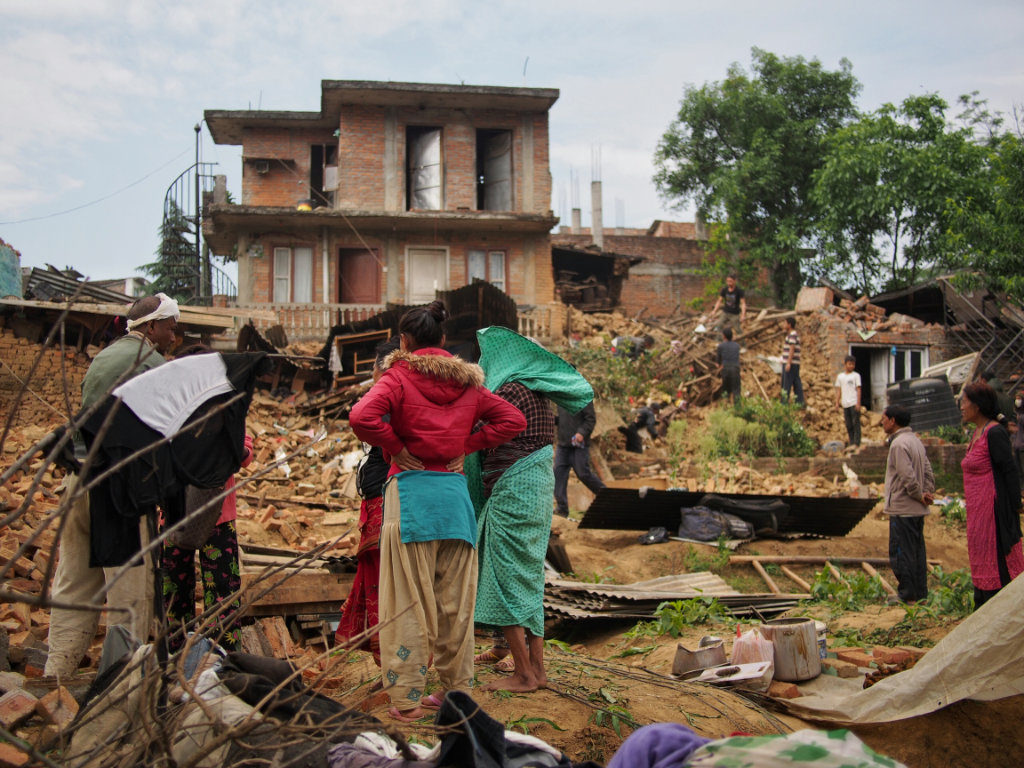
Sunrise Farm in Rani Patati village near Kathmandu, is a community farm owned & managed by Mr Shyam Shrestha & his family. It is a working farm, established in 1995, offering demonstration, training and seed & seedling distribution facilities.
The farm also runs a program committed to the demonstration and training of sustainable agriculture and community development techniques and approaches
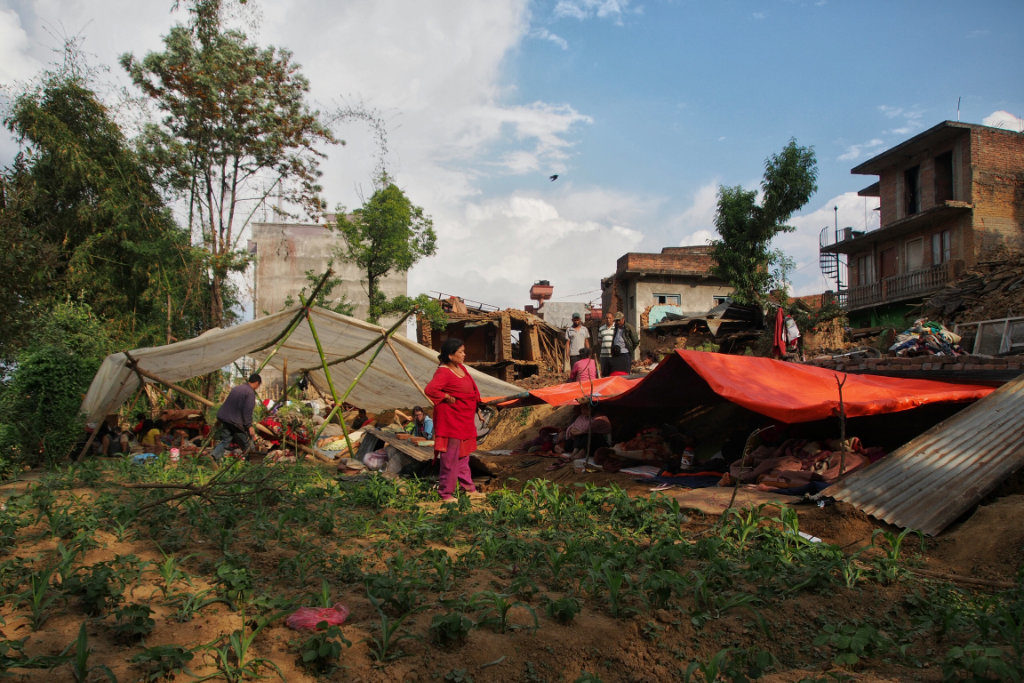
Various foods and resources are grown & harvested including roots, grain, leaf, fruit & flower crops from trees, shrubs, grasses and herbs plus firewood, animal fodder and mulch. Crops are protected by integrated pest management strategies, encouraged by microclimate creation and use, etc
Immediately after the earthquakes, hundreds of people descended on the farm’s land in order to be away from large buildings that were collapsing all around. The farmhouse was structurally damaged and unsafe and the barn was totally destroyed.
Many people, sheltered under hastily constructed plastic tarps, including the Shrestha family.
They cooked for dozens of refugees for 4 days until emergency services, water & electricity reached the area. They continued catering for their community for some weeks, using the farm’s abundant vegetables and grains grown in the organic no-till beds.
Following a crowd funding appeal, donations and a micro-grant from Permafund, work to rebuild Sunrise Farm started in November 2015. However, at the start it was affected by the embargo on Nepal by India that ran from September 2015 until January 2016.
Commodities became unavailable or at best, prohibitively expensive, as fuel became rare. Again, while the city starved of cooking gas, forests around the valley began to be stripped. Sunrise Farm was able to cook on its ageing biogas unit fueled by recycled manure plus biomass, supplemented by firewood from the agroforestry section of the farm.
This delay time was used for planning & research of the best methods of re-building. As funds accrued, work started in December with de-construction of damaged areas of the house and barn and recycling of the materials.
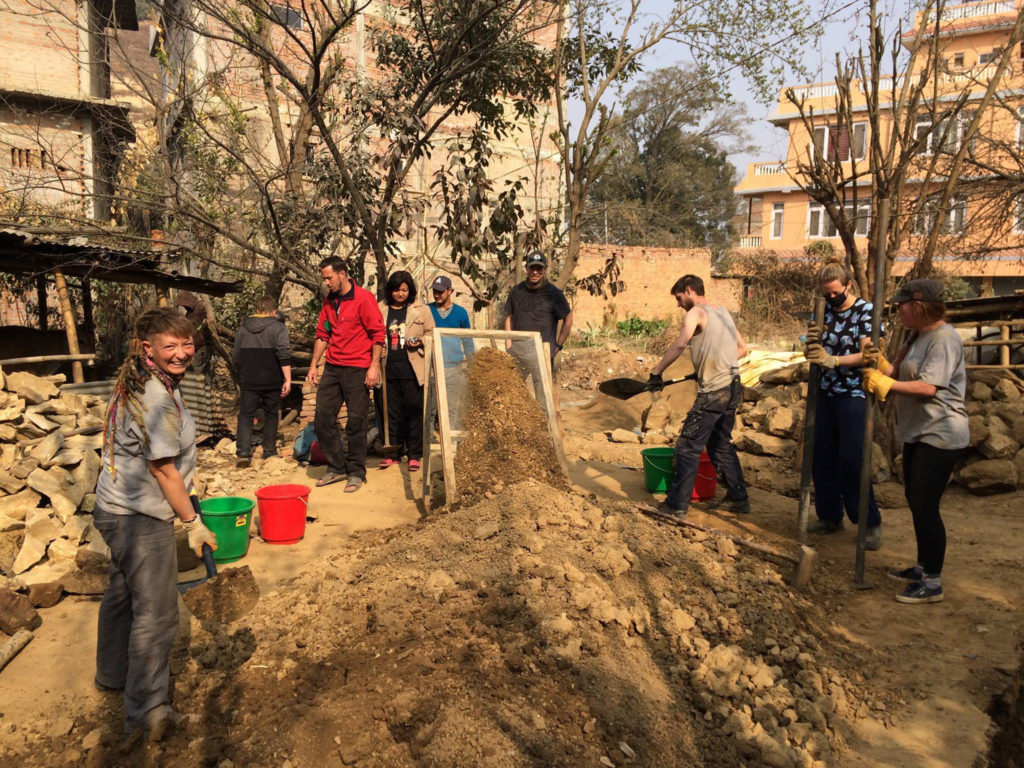
The house build involved jacking up existing concrete beams and strengthening them with new and stronger beams, infilling with traditional brickwork using partially recycled bricks from the demolished walls and partially stabilised compressed earth bricks (SCEBs). The SCEBs were manufactured using a hydraulic ram made in Nepal with an earth and 6% cement mix. They were not fired.
The house has now been completely restored, except for plastering and painting. This will be done in the Autumn (Spring in Southern Hemisphere) of 2016, following a planned training course in lime plastering.
Meanwhile work has started on the barn. Sunrise Farm was fortunate to meet International Disaster Volunteers (IDV) with whom they struck up a partnership and who provided an architect and constant stream of volunteers to help the Sunrise Farm family.
The barn was built using a combination of SCEBs, stone & mud mortar plus bamboo (both as structural beams and woven as wall fabric), with a corrugated tin and Perspex roof for extra light. Like the house, the barn is complete except for pleasuring and painting.
Currently the family is constructing the new training hall. International Disaster Volunteers are helping with this too. The aim is to have this complete, or at least covered, before the monsoon sets in.
Sunrise Farm has already begun to host training and demonstration projects thanks to the help of the crowd funding and donations. Permaculture diploma induction events and farmers’ field trip visits will be included.
 You can help Sunrise Farm by supporting their crowd-funding campaign
You can help Sunrise Farm by supporting their crowd-funding campaign
Permafund have provided a micro-grant to support this project, as well as supporting other permaculture projects around the world. Donations of $2.00 or more to Permaculture Australia’s Permafund (Permaculture International Public Fund) are tax deductible in Australia.
For more information about the impact on the earthquake see details at USAID.

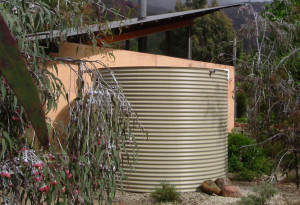
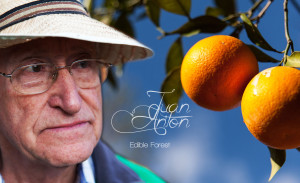
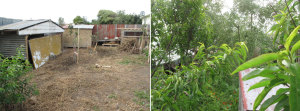

I shutter to think just how much of a horrific death some of these people must have suffered. Imagine just being trapped underneath rubble in tremendous pain and starving to death. Makes me shutter.